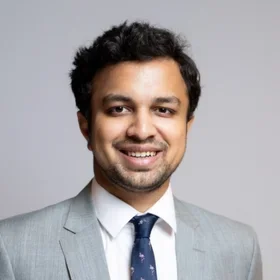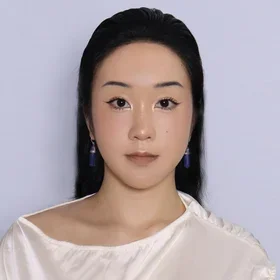Rita (Yijing) Zhang grew up in Beijing, where she was a prolific child actress. She studied Film and Media Studies at Columbia College, and continued to pursue her interest in the arts and advancing nonprofit organizations through the M.S. in Nonprofit Management program.
Tell us about your background. What are you most proud of from your time as a professional actress?
I acted for twelve years, in on-stage musicals, movies, television, and commercials. My time as an actress allowed me to build up networks in the Chinese film industry, as well as a lifetime love and appreciation for the arts, film, and writing. Working as a teenager also helped me develop my social skills and attention to detail. I had to learn to manage my time between school and my career.
My favorite opportunity would probably be the art house film Electric Shadow. It is the most internationally recognized film I have done, and played at various international film festivals, such as Venice.
I went on to study Film and Media Studies at Columbia College, which allowed me to hone my writing, and analyze film history and theory.
Why did you choose to apply to the M.S. in Nonprofit Management program?
While I was at a work study at Columbia’s Undergraduate Admissions office, a colleague referred me to the SPS graduate programs. I was searching for an advanced degree that would connect my interest in the arts to the professional world.
I am very passionate about underrepresented films, and discovering independent film through New York City institutions and film-related nonprofits. NYC has such a vibrant film scene. I was curious about the future of the industry. With the advent of technology and streaming, are these nonprofits sustainable? I applied to the Nonprofit Management program to see how I might engage this idea, and advance film and the arts through my professional career.
What did you learn in the program? Did the program help you build certain skills?
The Nonprofit Management program curriculum is designed to build skills across disciplines. It made so much sense coming out of Columbia College’s core curriculum, that the M.S. is rooted in a framework that tracks your progress and learning.
Nonprofits often discuss best practices in the industry, but in terms of becoming a manager in the space, the program gave me a solid, well-rounded education in leadership. I appreciate that the program focuses beyond fundraising. There is an emphasis on meeting people, data analytics, strategic communication, and business schooling.
What were some of your favorite, or most impactful courses?
Dr. Aaron Wallen’s Leading People course is the nonprofit version of a business course. It helped me get to know my strengths and weaknesses in a work environment. We discussed case studies in each class, and working with my colleagues helped me learn very quickly what areas and skills I needed to personally develop. I loved observing my peers, how quick they were on their feet, how concise their presentations were, what values they focused on--I was able to pinpoint the essential building blocks of public speaking and reasoning that we learned.
I also loved my capstone with Odell Mays. I worked with the Harlem-based nonprofit Artistic Noise, which is an organization that brings the freedom and power of artistic practice to young people who are incarcerated, on probation, or otherwise involved in the justice system. I felt very connected with the team and their mission to use arts as therapy. The capstone was an eye-opening experience to see how social justice and arts come together. Our team of about ten people came up with a plan for communications, governance and programming for the organization to consider adopting. This was a fantastic hands-on experience to work on issues as a consultant, and work with others who are equally passionate about the nonprofit and their mission. We used everything we learned in the program--the leadership skills, financial and data skills--to work with a real client. This was a very memorable experience, not just in terms of what I learned, but the strong relationships I made with both the client and my classmates.
What are your long-term career goals?
I have a new position Project Coordinator in Columbia’s Office of the Vice Provost of Academic Programs. The office is responsible for overseeing University academic programs, with a focus on university, state, federal and regional accrediting agency compliance with a wide range of policies and regulations. The office, in collaboration with schools, facilitates the development of educational agreements that involve partnerships with U.S. and foreign universities and organizations. We also lead the University accreditation process, support faculty development, administer the Presidential Teaching Awards for faculty and graduate students, manage internal funding competitions for faculty, facilitate interschool fellowships for faculty and graduate students, and advance interdisciplinary programs across schools and departments. My job involves applying my knowledge from the Data and Analytics course, as I work with a lot of databases that monitor and track academic programs across the entire University. I am very excited about applying my degree to support this important work across the University.


